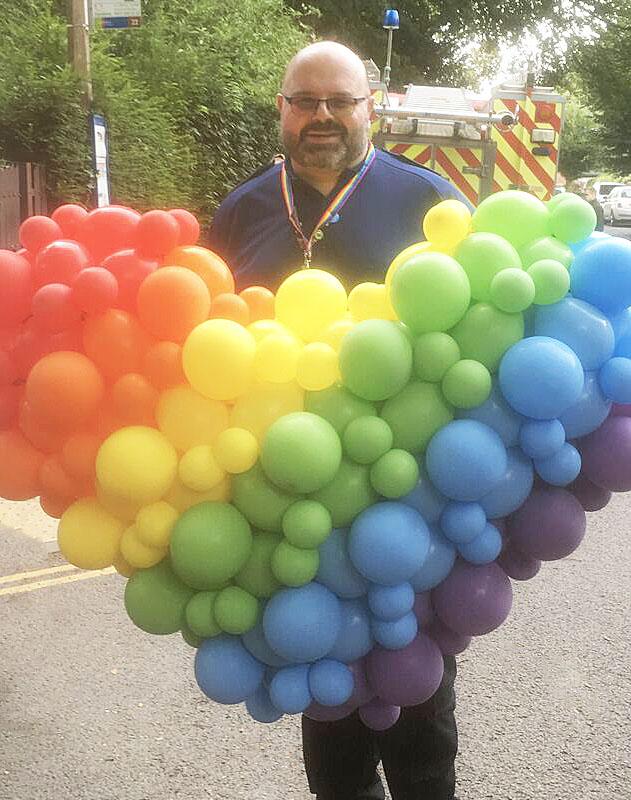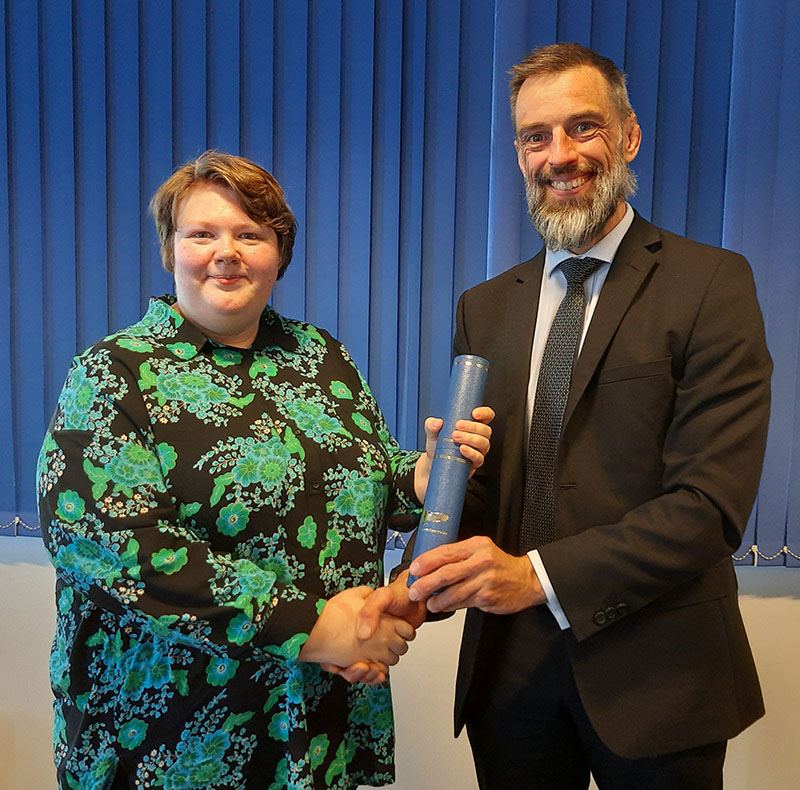This blog is taken from an email written by a police officer member of the Police Scotland Disability & Carers Association (DACA) in 2021 – it is shared here for World Autism Acceptance Day with the member’s permission
So today is World Autism Awareness Day, and I thought I’d write a little something. I have been reading so many posts online, and unfortunately lots of people think that autistics have zero empathy, can’t hold a conversation, have no friends or relationships and are pretty much destined to fail in life. I wanted to challenge some of these myths and stereotypes and show you that this isn’t the case at all.
Anybody can be autistic – you can’t tell if somebody is autistic by looking at them or even by having a surface level conversation most of the time.
Lots of famous people are/were autistic, Including Charles Darwin, Steve Jobs, Bill Gates and Albert Einstein. Autistic people are NOT stupid.
Autistic people can have friends and relationships. I am a busy working mum, I’m married, and I have been a police officer for a decade. I also have friends. I will admit I can struggle building new friendships as I’ve never been a ‘huggy’ person, and I always feel a bit socially awkward, but I do have lots of lifelong friends who I know will always support me and have my back.
Not all autistics like trains and maths – lots do and that’s absolutely fine, but often people will have more mainstream interests like bands or animals. These also don’t need to be lifelong interests. They can last weeks, months or even years, but are usually quite intense.
Autism is just as prevalent in females as males – it just often presents differently so is missed or diagnosed much later. Lots of females ‘mask’ or ‘mirror’ behaviours they have seen in an attempt to fit in. They will learn how society expects them to behave and practice this.
Autism is usually hereditary, and not always inherited from a parent – sometimes it is passed from a grandparent or aunt/uncle, but there’s a usually a family connection.
Autistic people can have empathy – some people actually have so much empathy they don’t know how to channel it. Others can struggle with recognising thoughts and feelings, but it doesn’t mean they don’t care, it just means that they need to work that little bit harder to understand.
Autistic people can hold eye contact. They are just more aware of it, and it’s a conscious effort rather than a natural one.
I was diagnosed with autism around a year ago. My daughter was struggling in school and was referred for an ADHD assessment (again this is hugely misunderstood and isn’t the naughty schoolboy stereotype people imagine, but that’s a whole other story in itself). During the assessment process, the consultant advised me to seek assessment myself, as he suspected I had it too. I did – I was diagnosed with both ADHD and autism, to my surprise. Until now, I hadn’t shared this with many people – I’m not ashamed, I guess I just hadn’t fully processed it myself and was scared people would judge me. I am me. I haven’t changed as a person, but unfortunately people sometimes see a label and have pre-conceived ideas of how you are supposed to look or act, and I didn’t want that.
I don’t really fit the stereotype, so my whole adult life I have been totally unaware why I’ve always felt like I never quite fitted in or why I saw myself as a bit of an outsider. Growing up I had a few close friends, but never fared well in group situations. I do struggle socially, but not in the way people automatically assume when they hear ‘autism’. I’m overly chatty, I often speak too quickly and don’t always notice the tone or volume of my voice. I jump into conversations and often cut people off when they are talking because I don’t always get when it’s my turn to speak. These are all traits of being autistic too.
A lot of people with autism also have a number of sensory issues. For example, to this day I can’t touch raw chicken – I hate the slimy feeling of it and will always ask my husband to cut it for me before cooking, or I pay extra to buy the pre-chopped packs! I also hate itchy woolly jumpers and nylon tights because the material really irritates me.
I massively struggle with executive function skills such as directions too. Ask anybody who knows me or who has worked with me and they will confirm as it’s a bit of a running joke. Thankfully we have sat-navs and Google maps, so it’s never caused me any real issues in my work or personal life. I once went the wrong way when I was driving to Alton Towers though, and ended up driving for two hours in the opposite direction!
People with ASD tend to be very set in their routines too. I have a job that’s structured, so this really suits me. Even when I’m driving home I always tend to go the same way because it’s a route I’m comfortable and familiar with and know well. If there are roadworks or diversions in place this can really stress me out.
I can get overwhelmed quite easily too. At work I need to stay calm and collected (which I have never had any issues with) but it can be exhausting, as you’re so aware of everything you say and do, so will often come home completely drained and not want to join in with family board games/films etc for the rest of the night.
Autism can be a real gift. I have an amazing memory. Just yesterday a colleague asked for a phone number I hadn’t used in years and I remembered it when nobody else did. I notice lots of little details other people don’t too. I am also very aware of the condition so that makes me a great advocate for my kids.
I think the main thing to remember is that autism is a spectrum condition, so not everyone struggles in the same way. It’s wrong to label people and make assumptions, and that’s why I wanted to share my own experience. ∎




